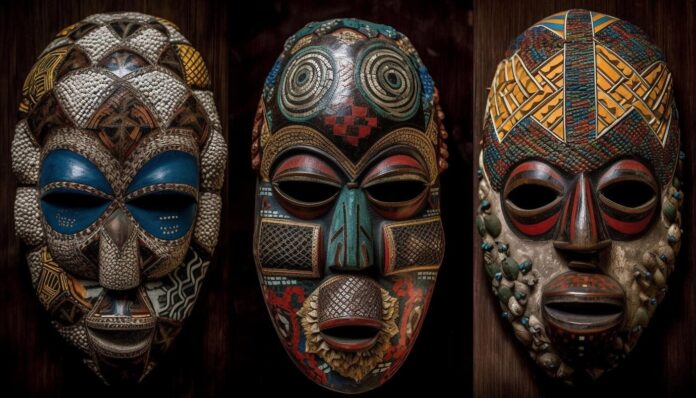How Folklore Shapes National Identity
Folklore is more than just stories passed down from generation to generation. It’s the very heartbeat of a culture, a collection of traditions, customs, myths, and legends that not only shape how a society lives but also how it defines itself. Folklore is often intertwined with a nation’s identity, influencing everything from national pride to the values shared by its people. But how does folklore help shape a national identity, and why does it matter?
What Is Folklore?
At its core, folklore is the body of traditional beliefs, customs, stories, and practices that are passed down orally or through repeated practices within a community. It includes myths, fairy tales, proverbs, songs, dances, rituals, and even everyday sayings that reflect the collective wisdom and imagination of the people. Folklore often arises from real-life experiences, local history, and even fears or desires, becoming a mirror of the society that produces it.
Folklore isn’t just a collection of old stories or childish tales ; it’s an essential part of how a community remembers its past, makes sense of its present, and dreams about its future.
Folklore and National Identity
National identity is the sense of belonging to a particular nation, and its often defined by shared language, culture, history, and values. Folklore plays a key role in shaping this identity, weaving together the past and the present in ways that are deeply emotional and relatable for citizens. Here’s how it does that:
1. Creating Shared History and Myths
Folklore helps to shape the collective memory of a nation. Take, for example, the many myths and legends surrounding national heroes, battles, or significant historical events. These stories are often told and retold, growing more elaborate over time, but always with the underlying message of courage, honor, or resilience. In Ireland, the myth of Cú Chulainn, the warrior hero who defended his people against overwhelming odds, serves as a symbol of Irish pride and tenacity. Similarly, American folklore often glorifies figures like Paul Bunyan or Johnny Appleseed, imbuing the nation’s history with a sense of adventure and pioneering spirit.
By incorporating these stories into everyday life, folklore helps define what it means to be a part of that nation, drawing on shared symbols and heroes that give people a sense of common purpose and belonging.
2. Defining Values and Norms
Folklore also serves to reinforce the values and norms of a society. The stories that are passed down often include lessons or moral teachings that reflect what the culture holds dear. For example, fairy tales from Europe, such as those collected by the Brothers Grimm, often emphasize virtues like kindness, perseverance, and honesty, while warning against greed, arrogance, or laziness. These values help shape the national ethos and influence how individuals interact with one another within the larger society.
In many cultures, folklore also helps establish the roles and expectations of different members of society. In Japan, for instance, the legends of samurais and their code of honor, known as Bushido, continue to inform the nation’s ideals of loyalty, respect, and discipline. Similarly, stories of pioneer life in the United States emphasize values like self-reliance, freedom, and individualism.
3. Cultural Pride and Unity
Folklore offers a powerful way for a nation to celebrate its uniqueness and foster a sense of unity. Think of the national dances, music, and food that have folklore at their roots. In Scotland, the Highland games and the bagpipes are deeply connected to the country’s cultural identity, steeped in centuries of tradition and folklore. Similarly, in Mexico, Día de los Muertos (the Day of the Dead) blends folklore with religious practices, creating a vibrant celebration of life and death that resonates deeply with national pride.
These customs and rituals don’t just preserve culture; they actively shape how people perceive themselves as part of a larger community. In this way, folklore is not just a reflection of national identity; it actively shapes and reinforces that identity in tangible ways.
4. Adapting to Change and Challenges
In times of upheaval or change, folklore can also serve as a tool for resilience. When societies face challenges whether they be political, economic, or cultural folklore can offer a sense of continuity and stability. During times of war or conflict, stories of past victories or legendary figures are often resurrected, reminding people of their strength and unity. In Eastern Europe, for instance, folklore became a form of resistance during periods of political oppression, with traditional stories being used as subtle critiques of authority or as a means of preserving national culture.
Folklore also allows for cultural adaptation. As societies become more globalized, folklore can evolve, incorporating new ideas and experiences while maintaining a sense of connection to the past. This process ensures that national identity remains relevant and resilient even in the face of modern challenges.
Conclusion
Folklore is far more than an anthology of old stories. It’s a living, breathing force that shapes and reflects national identity, creating shared history, reinforcing values, and offering a sense of unity and pride. By connecting the past to the present, folklore helps a nation understand where it’s come from and where it’s going. In this way, folklore is not just something we remember it’s something that shapes who we are, both individually and collectively, as a nation.





